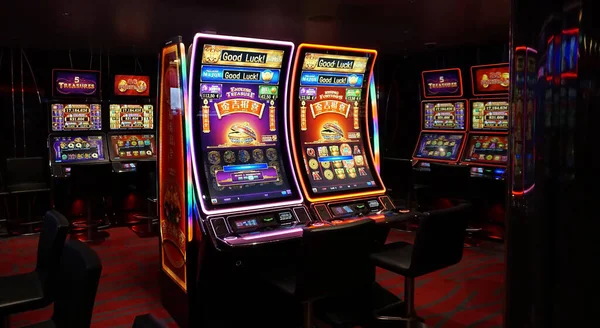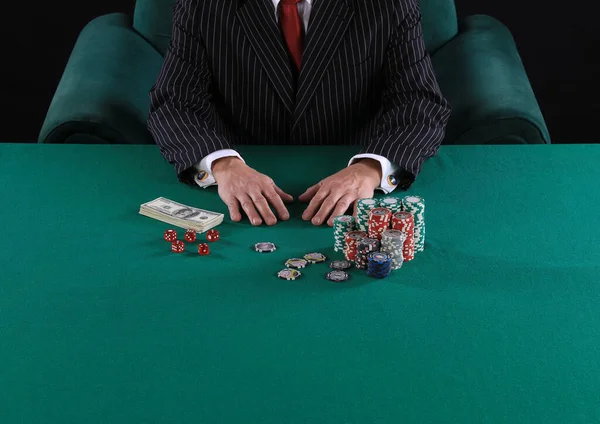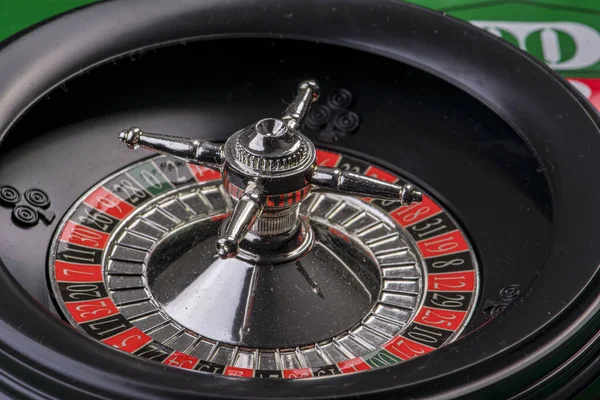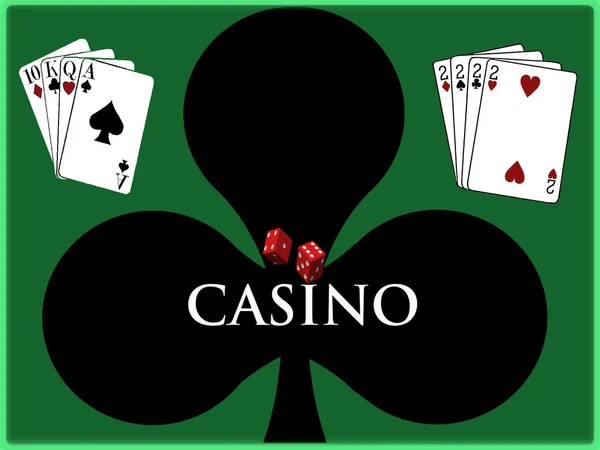Exploring the Link Between Online Gambling and Impulse Control

In the ever-evolving landscape of online gambling, one intriguing aspect that has garnered considerable attention is the connection between engaging in virtual betting and the human capacity for impulse control. This article Playing 1000 Diamond Bet Roulette complex relationship delves into the realms of psychology, neuroscience, and gaming behavior, offering both challenges and insights for players and researchers alike.
Online gambling platforms have undeniably transformed the way we experience games of chance, providing easy access to a plethora of options from the comfort of our devices. This accessibility, coupled with the thrill of potential wins, can sometimes pose challenges for individuals with varying levels of impulse control.
Researchers and experts from organizations such as Gambling Insider and Casino.org are actively exploring the nuances of this link. They investigate how online gambling environments are designed to engage players and the impact these design elements have on decision-making and impulse control.

Moreover, studies featured on platforms like iGaming Business delve into the neurological aspects of gambling, shedding light on how our brains respond to the excitement and unpredictability of casino games. Understanding these underlying mechanisms is crucial in developing responsible gaming strategies.
For those interested in a comprehensive overview of the topic, Wikipedia offers an extensive resource on problem gambling and related research, including insights into the intricate web of factors contributing to impulse control challenges.
While the link between online gambling and impulse control is multifaceted, it's essential to emphasize that responsible gaming practices play a pivotal role. Reputable online casinos, as featured on European Gaming, are committed to promoting responsible gambling by offering tools for self-exclusion, deposit limits, and reality checks, empowering players to manage their gaming behavior.
As the digital gaming landscape continues to evolve, so does our understanding of the connection between online gambling and impulse control. Through ongoing research, responsible gaming initiatives, and player education, we aim to strike a harmonious balance between entertainment and self-control in the world of online gambling.

entertainment and self-control in the realm of online gambling.
Recent Research Insights:
Neuroscience Breakthroughs: Scientists are making significant strides in understanding how the brain's reward centers respond to the stimuli presented in online gambling, offering insights into the neurological basis of impulse control.
Behavioral Patterns: Researchers are examining player behavior data to identify common patterns of impulsivity and develop personalized interventions that promote responsible gaming.
Cross-Cultural Studies: Studies comparing gambling behavior across different cultures are shedding light on cultural influences on impulse control and addiction vulnerability.
Real-Life Stories of Empowerment:

Stories of individuals who have successfully managed their impulse control challenges while enjoying online gambling are a testament to the power of responsible gaming. These stories serve as beacons of hope and inspiration for others.
Responsible Gaming Initiatives:
Self-Exclusion Programs: Online casinos are increasingly offering self-exclusion options, enabling players to voluntarily restrict their access to gambling platforms for a set period.
Deposit Limits: Setting daily, weekly, or monthly deposit limits helps players manage their spending and avoid impulsive bets.
Reality Checks: Some platforms provide reality check notifications, reminding players of the time they've spent gambling and encouraging breaks for reflection.
For those eager to explore further, comprehensive resources like GamblingNews provide the latest updates on responsible gaming initiatives, regulatory developments, and player success stories.
As we navigate the dynamic landscape of online gambling and impulse control, it becomes evident that knowledge, research, and responsible gaming practices are powerful tools in ensuring a positive and fulfilling gaming experience. By fostering a culture of responsible play, we can harness the excitement of online gambling while nurturing self-control and well-being.
Understanding the Role of Random Number Generators (RNGs) in Online Casinos

Delving into the world of online casinos, one cannot overlook the pivotal role played by Random Number Generators (RNGs). These intricate algorithms serve as the bedrock of fairness and unpredictability in the digital realm of gambling. Let's embark on a journey to understand the inner workings of RNGs and their significance in online gaming.
RNGs are, at their core, complex mathematical formulas designed to generate sequences of numbers that lack any discernible pattern. This unpredictability is the keystone of fair play in online casinos, ensuring that each spin of a slot machine or draw of a virtual card is entirely random and unbiased.
The importance of RNGs is echoed across reputable sources like 888 Casino, a prominent platform known for its comprehensive insights into casino gaming. They emphasize how RNGs assure players that outcomes are not influenced by external factors, creating a level playing field for all participants.

These algorithms are rigorously tested and certified by independent auditing agencies such as eCOGRA, further validating their reliability. Online casinos proudly display their RNG certification as a mark of trustworthiness and commitment to fairness.
It's important to note that RNGs are not exclusive to slot machines. They also underpin various other casino games, including roulette, blackjack, and video poker. In each case, RNGs ensure that outcomes are devoid of human interference, delivering an authentic and unbiased casino experience.
While RNGs are the guardians of fairness, they also contribute to the excitement of online gambling. The element of unpredictability adds a layer of thrill and anticipation to each wager, keeping players engaged and entertained.
The Assurance of Fairness: How RNGs Shape Online Casino Gaming

As we've unraveled the essential role of Random Number Generators (RNGs) in online casinos, it becomes clear that these intricate algorithms are the linchpin of integrity and equity in the digital gambling world. Let's delve deeper into the mechanisms and assurances that RNGs provide to players and the industry as a whole.
RNGs, as mentioned earlier, are mathematical constructs that generate sequences of numbers with no discernible pattern. This inherent randomness is the cornerstone of fair play, guaranteeing that every spin, shuffle, or card draw in online casino games is entirely unpredictable and unbiased.
Reputable sources like Casino.org recognize the paramount importance of RNGs in ensuring the credibility of online casinos. They emphasize how these algorithms eliminate the possibility of human manipulation, fostering a sense of trust among players.

For added assurance, RNGs undergo rigorous testing and certification by organizations like Technical Systems Testing (TST). This third-party validation underscores the commitment of online casinos to transparency and fairness.
While the primary function of RNGs is to maintain fairness, they also inject excitement into online gaming. The unpredictability of outcomes keeps players engaged, as each bet holds the promise of a thrilling win.
Moreover, RNGs enable online casinos to offer a vast array of games, from classic slots to innovative live dealer experiences. In every case, the integrity of these games hinges on the reliability of the RNGs that power them.
As we look to the future of online gambling, the role of RNGs will remain central. These algorithms will continue to evolve, ensuring that players can trust in the integrity of the games they enjoy. Ultimately, RNGs not only shape online casino gaming but also pave the way for a future where fairness and excitement coexist harmoniously.
The Psychology of Slot Machine Design and Player Behavior

Exploring the intricacies of slot machine design and its profound impact on player behavior reveals a fascinating intersection of psychology and gaming technology. Slot machines, found in both land-based casinos and online platforms, have evolved over the years, employing various tactics to engage players and keep them coming back for more.
Understanding the psychology behind slot machine design requires us to dissect the elements that make these games so captivating. From visual and auditory stimuli to reward systems, each aspect plays a vital role in shaping the player experience.
One crucial aspect is the use of vivid colors and dynamic graphics, designed to grab players' attention. The flashing lights and vibrant themes are carefully crafted to evoke excitement and anticipation, enticing players to place their bets.

Sound also plays a pivotal role, with the inclusion of melodic tunes and celebratory noises upon winning. These auditory cues trigger the brain's pleasure centers, creating a positive association with playing, even in the face of losses.
Moreover, the concept of near-miss outcomes is a prevalent psychological tactic. Slot machines often display symbols that are just one position away from a winning combination, creating a sense of "almost there" that compels players to try again, believing that their next spin could be the jackpot.
Additionally, many slot machines employ a system of variable reinforcement schedules, where wins are intermittent and unpredictable. This mirrors the principles of operant conditioning, making the act of playing akin to a reward-seeking behavior, much like a lab rat pressing a lever for a treat.
To delve deeper into this intriguing topic, consider reading the comprehensive article on Psychology Today. It provides an in-depth analysis of the psychological tricks embedded in slot machine design that keep players engaged.
Furthermore, the impact of these design elements on player behavior cannot be understated. Many individuals find themselves ensnared by the allure of slot machines, often spending more time and money than they initially intended. This phenomenon has led to concerns about the addictive potential of these games and has prompted discussions on responsible gambling practices.
The Slot Machine Experience: Unraveling the Psychology Further

Having peeled back the layers of psychology in slot machine design, we now embark on a deeper exploration of the player experience and the implications of these design elements. The world of slot machines is a mesmerizing blend of science, art, and human behavior, and understanding it fully requires examining the intricate interplay of these elements.
Let's delve into some additional aspects of the psychology behind slot machines:
1. The Gambler's Fallacy:
One of the psychological phenomena at play is the gambler's fallacy. Players may believe that after a series of losses, a win is imminent. This erroneous belief can keep them glued to the machine, chasing that elusive jackpot.
2. The Illusion of Control:
Slot machines often provide players with the illusion of control, allowing them to stop the reels or make choices in bonus rounds. This perceived control fosters engagement and a sense of agency, even though outcomes are ultimately determined by RNGs.

3. The Role of Sound and Music:
Soundscapes in slot machines are carefully composed to trigger emotional responses. Winning jingles and celebratory tunes evoke positive feelings, while near-miss sounds maintain excitement, even in the face of losses.
4. The Allure of Jackpots:
Progressive jackpots, with their ever-increasing prize pools, have a magnetic pull on players. The chance to win life-changing sums of money keeps them spinning the reels with hope and anticipation.
These additional psychological aspects contribute to the mesmerizing nature of slot machines. Players are not merely pulling levers or tapping screens; they are engaging with a carefully orchestrated experience that blends chance, psychology, and entertainment.
In the next sections of this article, we will delve into the ethical considerations of slot machine design, responsible gambling measures, and the evolving landscape of this captivating industry.
Key Takeaways:
The gambler's fallacy can lead players to believe that a win is due after a series of losses.
Slot machines provide players with the illusion of control, enhancing engagement.
Sound and music in slot machines trigger emotional responses, shaping the player's experience.
Progressive jackpots exert a powerful allure, enticing players with the possibility of life-changing wins.
